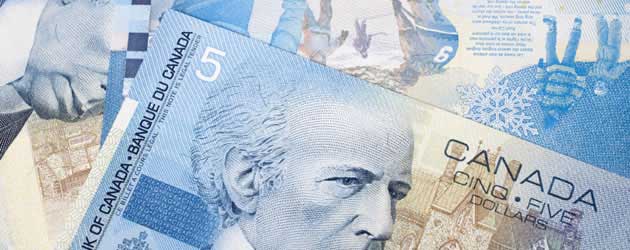
The Canadian Dollar Exchange Rate was in the region of 0.9906 against the US Dollar as of 16:44 pm GMT
Mark Carney might be defecting and leaving his native Canada to take over the role of Governor of the Bank of England, but for the moment he’s still very much involved in his nation’s economic situation.
Today Carney asserted that Canada’s economy is actually in the process of transitioning from an over-reliance on borrowing to production which will include stronger exports to counteract a softer housing market.
Carney was quoted as saying: ‘I think what we’ve done successfully […] is we’ve pivoted from stimulating household demand — housing market and household borrowing for consumption — kept employment up, and we’ve pivoted to focus on investment and exports. That’s a difficult rebalancing, but what we’re seeing without question is a very constructive evolution of Canadians’ attitude towards debt and towards the housing market and it is moving towards a much more sustainable equilibrium.’
But not everyone shares Carney’s optimism.
Last week concerns regarding the economic stability of Canada were exacerbated as the disappointing data releases for the nation continued.
Poor Canadian jobs data was followed by the most significant drop in manufacturing sales since 2009.
These factors, combined with the price of crude oil dropping to a three-week low, caused the Canadian Dollar to fall against the majority of its currency rivals and log a second week of declines against its American counterpart. Friday’s declines took the ‘Loonie’s weekly drop against the US Dollar to 0.4 per cent.
As HSBC Holdings Plc currency strategist Robert Lynch asserts: ‘Some of the data out of Canada has been weaker, and it’s taken a bit of the shine off the currency. The recent data has created headwinds for the currency that didn’t previously exist.’
Meanwhile another industry expert asserted: ‘The data was quite a bit softer than expected, and it painted a sluggish picture of the Canadian economy for the latter part of last year. It reaffirms the low-for-longer outlook for interest rates.’
As the G-20 met over the weekend the Canadian Dollar also lost 0.4 per cent against the Euro.
Before the gathering of finance ministers came to a close Jane Foley, a senior currency analyst with Rabobank, argued: ‘The Canadian Dollar is very much on the sidelines of the broader debates which are going on around the markets right now, which is the currency-war theme. Whether or not Canada can win back some ground, that’s definitely a potential, but not until the Bank of Canada drops its more dovish tone.’
However, some could argue that the outcome of the meeting could prove positive for the ‘Loonie’ in the long-term as Canada needs an export-driven boost and such a boost will only be possible if nations stop manipulating their currencies in order to improve their own trade figures.
But in the short-term this week’s Canadian inflation rate report could prevent ‘Loonie’ gains in the days ahead. Economists have forecast that the latest data will show that the inflation rate dropped to its lowest for over three years.
The bulk of Canada’s most volatile data, such as CPI and retail sales figures, isn’t scheduled for release until Friday, but investors will also want to be paying attention to tomorrow’s Canadian wholesale sales statistics. News from the Eurozone and US could also trigger fluctuations in the Canadian Dollar.
Current Canadian Dollar Exchange Rates
The Canadian Dollar to Euro exchange rate is currently trading at 0.7423
The Canadian Dollar to Pound Sterling exchange rate is currently trading at 0.6410
The Canadian Dollar to US Dollar exchange rate is currently trading at 0.9906
The Canadian Dollar to Australian Dollar exchange rate is currently trading at 0.9614
The Canadian Dollar to New Zealand Dollar exchange rate is currently trading at 1.1776
The Canadian Dollar to Japanese Yen exchange rate is currently trading at 93.1021
These exchange rates were correct as of 16:44 pm GMT

Comments are closed.